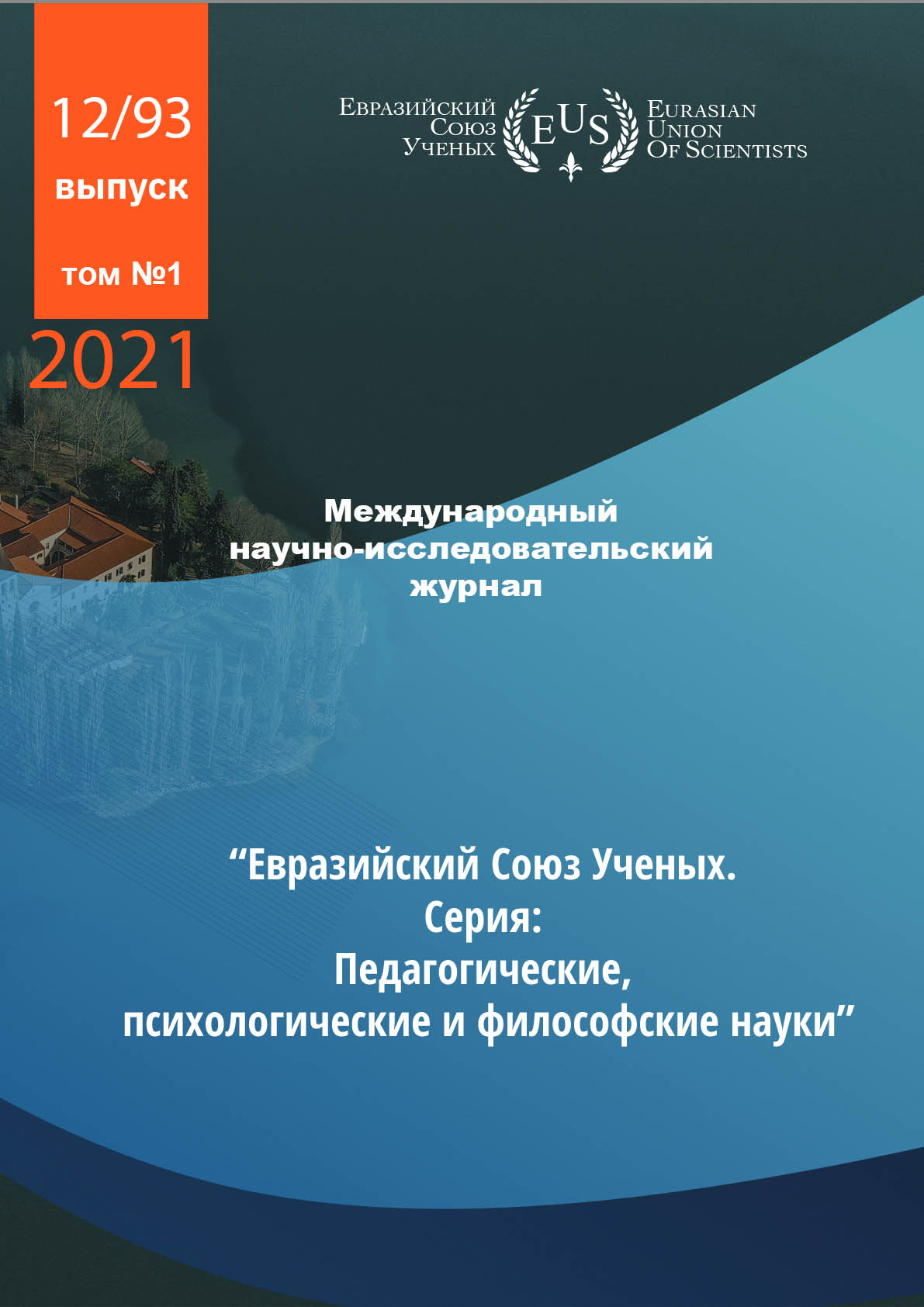ПРОФЕССИОНАЛЬНАЯ ПОДГОТОВКА ИНЖЕНЕРОВ В УСЛОВИЯХ ЦИФРОВОЙ ОБРАЗОВАТЕЛЬНОЙ СРЕДЫ
Аннотация
Проблема формирования готовности будущих инженеров к иноязычному общению является актуальной, так как иноязычная подготовка является частью профессиональной подготовки инженеров в рамках системы профессионального образования. Профессиональная подготовка инженеров представляет собой процесс овладения общекультурными и профессиональными компетенциями, позволяющими выполнять профессиональные обязанности в области инженерного дела. Профессиональная компетентность инженеров обеспечивает: эффективность профессиональной деятельности инженеров на предприятиях, успешное разрешение ими служебных заданий, отвечающих функциональным обязанностям, их взаимодействие со служебной средой и дает основы для профессионального самоутверждения и самосовершенствования их личности. В статье дана характеристика понятий «цифровая образовательная среда», «готовность к профессиональному иноязычному общению» будущих инженеров в вузе.
Литература
2. Ukaz Prezidenta Rossijskoj Federacii «O nacional'nyh celjah i strategicheskih zadachah razvitija Rossijskoj Federacii na period do 2024 goda» ot 07.05.2018 № 204 // URL: http://kremlin/ru/acts/bank/43027
3. Ukaz Prezidenta Rossijskoj Federacii «O nacional'nyh celjah razvitija Rossijskoj Federacii na period do 2030 goda» ot 21.07.2020 № 474 // URL: http://www.kremlin.ru/acts/news/63728
4. Postanovlenie Pravitel'stva Rossijskoj Federacii ot 26.12.2017 № 1642 «Ob utverzhdenii gosudarstvennoj programmy Rossijskoj Federacii "Razvitie obrazovanija na 2018-2025 g.» //URL:
http://www.garant.ru/products/ipo/prime/doc/71748426/
5. Ukaz Prezidenta Rossijskoj Federacii «O strategii razvitija informacionnogo obshhestva v Rossijskoj Federacii na 2017-2030 gody» ot 09.05.2017 № 203 // URL: http://www.kremlin.ru/acts/bank/41919
6. Morozov A.V. Professional'naja podgotovka rukovoditelej sistemy obrazovanija s ispol'zovaniem sovremennyh cifrovyh tehnologij // Chelovek i obrazovanie. 2018. № 4 (57). S. 105-110.
7. Manjahina V.G. Organizacija vneauditornoj samostojatel'noj raboty budushhih uchitelej informatiki v uslovijah primenenija setevyh distancionnyh obrazovatel'nyh tehnologij: diss…kand.ped.nauk: 13.00.02. / Manjahina Valentina Gennad'evna. M., 2009. 181 s.
8. Dem'janenko M.A., Lejfa A.V. Sovremennye podhody k professional'noj podgotovke budushhih inzhenerov v uslovijah cifrovoj obrazovatel'noj sredy // Otkrytoe i distancionnoe obrazovanie: nauchno-metodicheskij zhurnal. № 3 (75). Tomsk, 2019. S. 42-49.
CC BY-ND
Эта лицензия позволяет свободно распространять произведение, как на коммерческой, так некоммерческой основе, при этом работа должна оставаться неизменной и обязательно должно указываться авторство.





